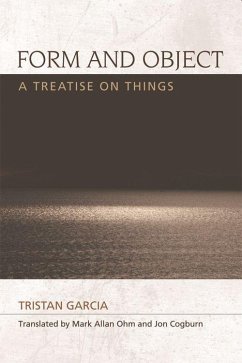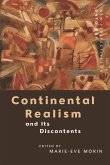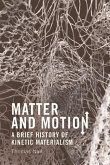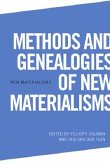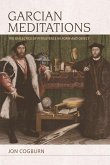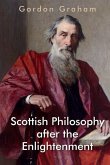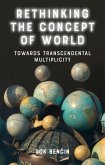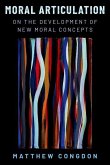What is a thing? What is an object? Tristan Garcia decisively overturns 100 years of Heideggerian orthodoxy about the supposed derivative nature of objects and in so doing provides deep insights about the world and our place in it. Garcia's original and systematic formal ontology of things strips them of any determination, intensity or depth. From this radical ontological poverty, he develops encyclopaedic regional ontologies of objects. By covering topics as diverse as the universe, events, time, the living, animals, human beings, representation, arts and rules, culture, history, political economy, values, classes, genders, ages of life and death, he shows that speculative metaphysics and ontology are alive and well.
Note: please match the spine colour with the author's name on the front. Second endorsement may follow. 'Reading Form and Object gives one the rare impression of discovering an utterly singular intelligence, reconfiguring all things, in a completely new tone. Tristan Garcia reinvents what seemed impossible after Hegel: speculative encyclopedism. A torrent of novel ideas. A tour de force.' Quentin Meillassoux, Maître de conférences à l'Université de Paris-1 (Panthéon-Sorbonne) A shockingly novel view of substance that will significantly change contemporary debates about substance and ontological emergence What is a thing? What is an object? Tristan Garcia offers an original and systematic formal ontology of things - stripped of any determination, intensity or depth - and from this radical ontological poverty he develops an encyclopaedic account of various kinds of objects. He covers topics as diverse as the universe, events, time, the living, animals, human beings, representation, arts and rules, culture, history, political economy, values, classes, genders, and ages of life and death to show that speculative metaphysics and ontology are alive and well. Garcia challenges nearly one hundred years of Heideggerian orthodoxy about the supposedly derivative nature of objects and in so doing provides deep insights about the world and our place in it. Tristan Garcia is a French philosopher and novelist. He is the author of philosophical works, including L'Image and Nous, animaux et humains. His fictional works include Les cordelettes de Browser, En l'absence de classement final and Mémoires de la jungle. In 2008 he received the Prix de Flore for his debut novel La Meilleure part des hommes, translated into English as Hate: A Romance. Mark Allan Ohm is a graduate research assistant at Louisiana State University. Jon Cogburn is Associate Professor of Philosophy and Religious Studies, also at Louisiana State University. Cover image: Dark Sky and Ocean (c) Wataru Yanagida/Getty Images. Cover design: [EUP logo] www.euppublishing.com
Note: please match the spine colour with the author's name on the front. Second endorsement may follow. 'Reading Form and Object gives one the rare impression of discovering an utterly singular intelligence, reconfiguring all things, in a completely new tone. Tristan Garcia reinvents what seemed impossible after Hegel: speculative encyclopedism. A torrent of novel ideas. A tour de force.' Quentin Meillassoux, Maître de conférences à l'Université de Paris-1 (Panthéon-Sorbonne) A shockingly novel view of substance that will significantly change contemporary debates about substance and ontological emergence What is a thing? What is an object? Tristan Garcia offers an original and systematic formal ontology of things - stripped of any determination, intensity or depth - and from this radical ontological poverty he develops an encyclopaedic account of various kinds of objects. He covers topics as diverse as the universe, events, time, the living, animals, human beings, representation, arts and rules, culture, history, political economy, values, classes, genders, and ages of life and death to show that speculative metaphysics and ontology are alive and well. Garcia challenges nearly one hundred years of Heideggerian orthodoxy about the supposedly derivative nature of objects and in so doing provides deep insights about the world and our place in it. Tristan Garcia is a French philosopher and novelist. He is the author of philosophical works, including L'Image and Nous, animaux et humains. His fictional works include Les cordelettes de Browser, En l'absence de classement final and Mémoires de la jungle. In 2008 he received the Prix de Flore for his debut novel La Meilleure part des hommes, translated into English as Hate: A Romance. Mark Allan Ohm is a graduate research assistant at Louisiana State University. Jon Cogburn is Associate Professor of Philosophy and Religious Studies, also at Louisiana State University. Cover image: Dark Sky and Ocean (c) Wataru Yanagida/Getty Images. Cover design: [EUP logo] www.euppublishing.com

